The Independent's journalism is supported by our readers. When you purchase through links on our site, we may earn commission. Why trust us?
What are creatine supplements and what do they do?
From health benefits to the supplements to try, here’s what to know about creatine monohydrate
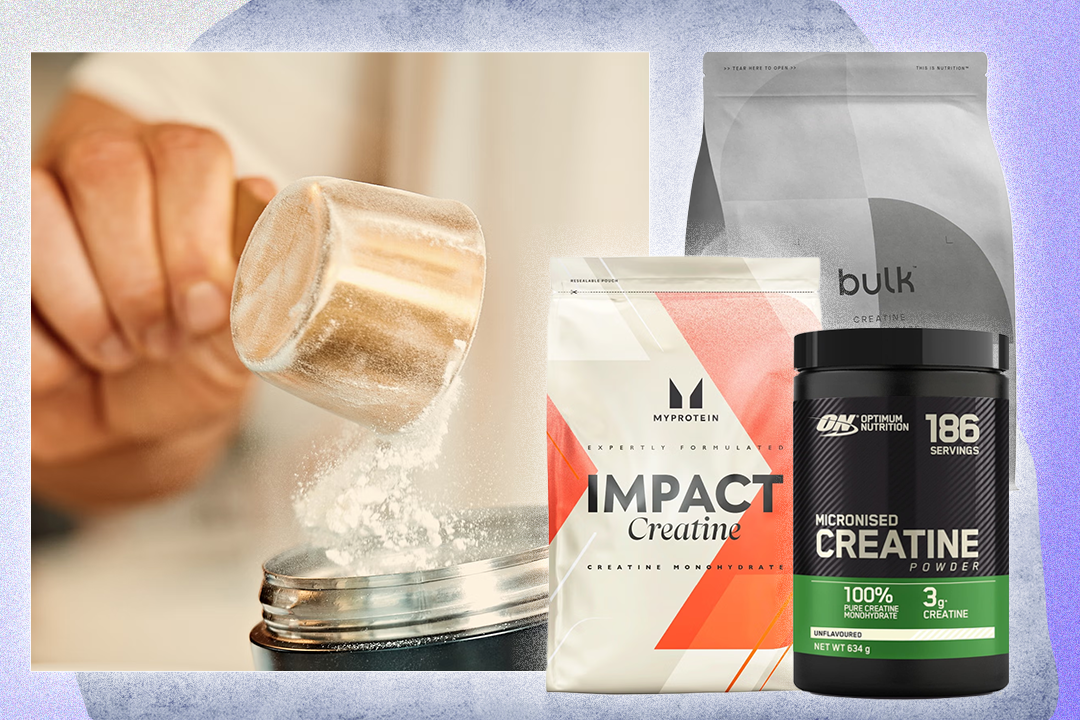
Creatine is a naturally occurring compound that supplies energy to muscles. According to the International Society of Sports Nutrition (ISSN), creatine monohydrate is one of the “most effective ergogenic nutritional supplements currently available to athletes with the intent of increasing high-intensity exercise capacity and lean body mass during training”. But it’s not just for elite athletes – people who regularly work out can benefit too and not just those who do power sports, such as weightlifting.
“There are many benefits of creatine,” including “increases in muscle mass and muscle strength, improved brain function, maintenance of muscle mass in an injured limb after injury, adenosine triphosphate increases to improve repeated sprint effort performance, improved recovery periods and endurance capacity, and body composition benefits (increase in lean body mass),” says Aimee O’Keeffe, senior performance nutritionist for England Senior Women’s Rugby. “Creatine supplementation combined with resistance training in elderly populations has also demonstrated some favourable effects on muscle mass, strength, physical performance and bone mineral density.”
Your body produces some creatine but the rest is gained through diet – it’s found in red meat and fish. However, the amount of food you’d need to consume to improve performance is too great, which is where supplementation steps in.
The most extensively studied and effective form is creatine monohydrate. Most brands sell it as pure, unflavoured powder, which can be mixed into drinks such as water or shakes, and it’s generally well tolerated. “When loading with creatine (which is 15-20g of creatine split between two to three doses in a day for five to seven days), there can be an initial gain in weight on the scale due to water retention, but this is temporary and doesn’t last for the duration of supplementing and doesn’t occur in everybody,” explains O’Keeffe.
The recommended daily dosage is between 3g and 5g. “There are no significant differences between pre- or post-training session supplementation,” O’Keeffe explains. “The first step to supplementing is being consistent with creatine once per day”. The ISSN adds that ingesting creatine with carbohydrate or carbohydrate and protein has been reported to more consistently promote greater creatine retention. O’Keeffe adds: “The research suggests there is no need to cycle on and off creatine and it can be consumed daily for long durations.” It is important to note, however, that if you have a health condition or are taking medication, you should check with your doctor before taking any supplement.
Read more: An expert-led guide to pre-workout supplements
Six creatine monohydrate supplements to try
If you’re looking to try creatine monohydrate supplements, we’ve rounded up a selection below. All of the ones we have selected are unflavoured, have no added ingredients and mix well into liquid (apart from the capsules). From experience, warm water or using a mixer such as a Nutribullet works best for mixing them. Similarly, creatine is naturally vegan-friendly but capsules sometimes contain gelatin.
Myprotein creatine monohydrate powder: £11.39, Myprotein.com
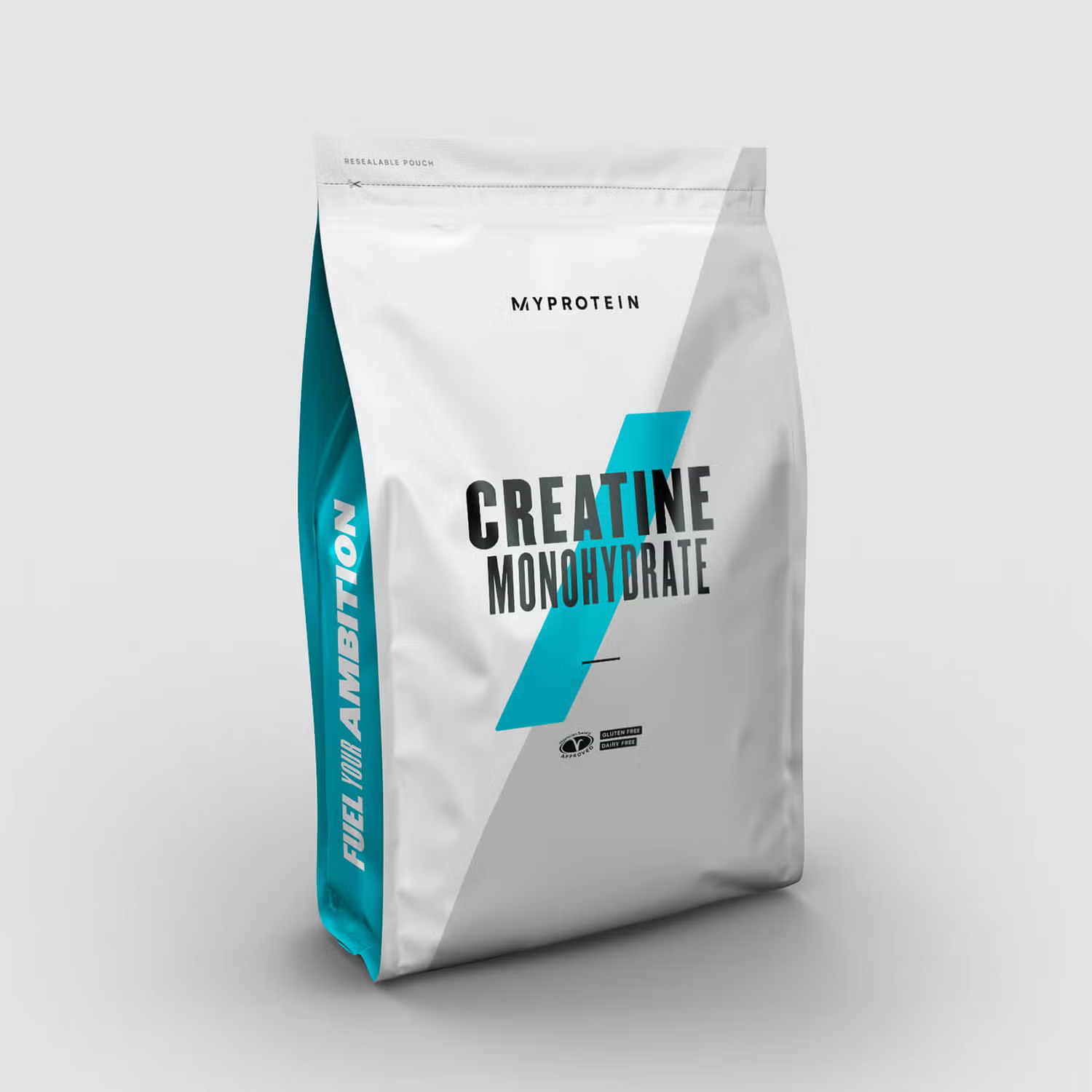
This powder from Myprotein is unflavoured, so you can combine it with your favourite pre-workout or protein shakes. It’s also gluten-free and suitable for vegans, making it a great all-rounder. One serving provides 3g creatine monohydrate.
Optimum Nutrition micronised creatine: Was £40, now £24.99, Amazon.co.uk
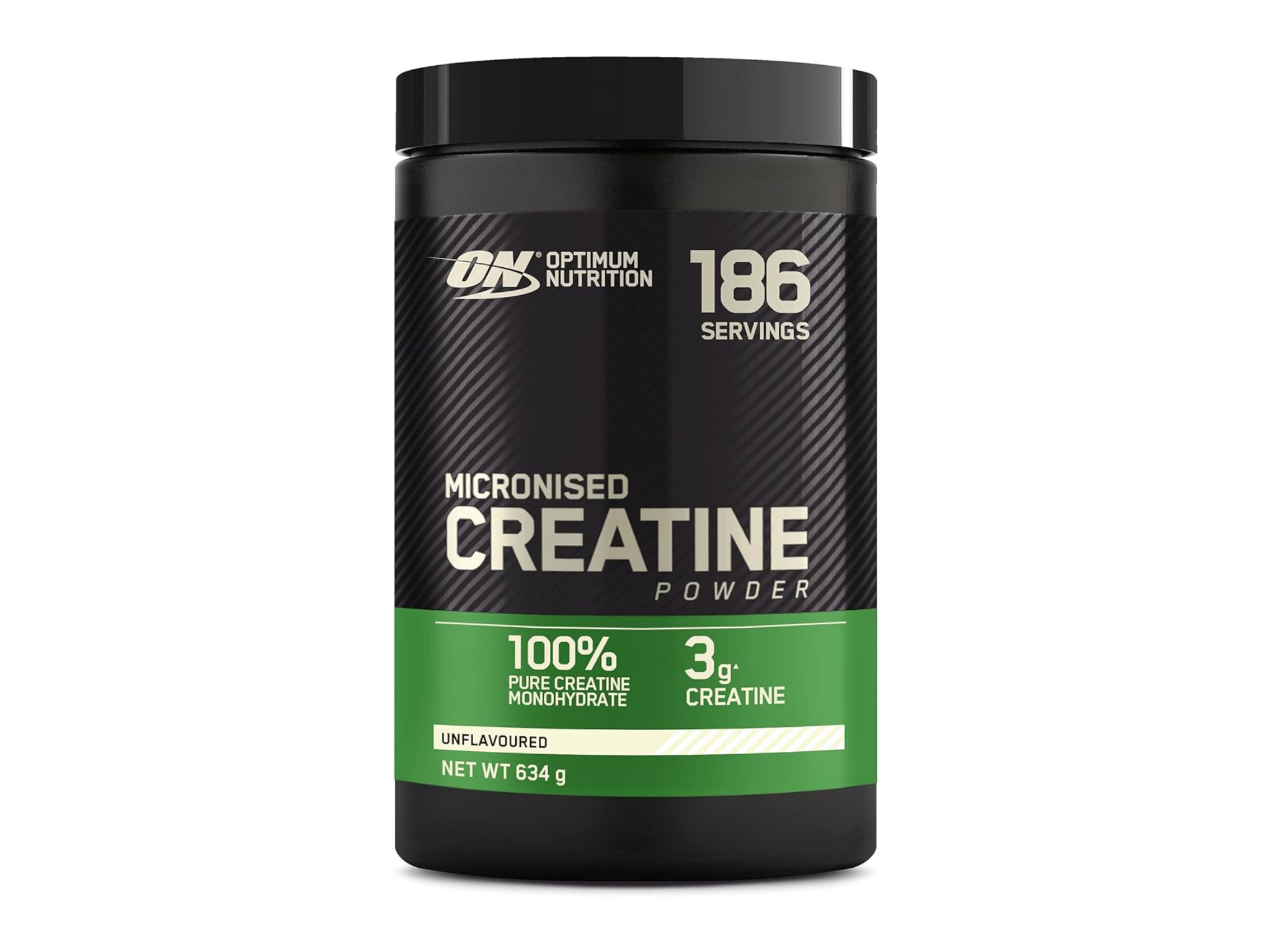
The particles in this unflavoured creatine monohydrate have been made smaller so the powder mixes more easily into liquid. We found that it does mix well into water although still doesn’t dissolve completely, but this doesn’t matter with any of these supplements as you drink it quickly and can swill the glass around at the end to get the last particles of the product. Each serving provides 3.4g creatine.
Read more: What is protein powder and which supplement to choose?
Bio-Synergy creatine monohydrate: £49.99, Bio-synergy.uk
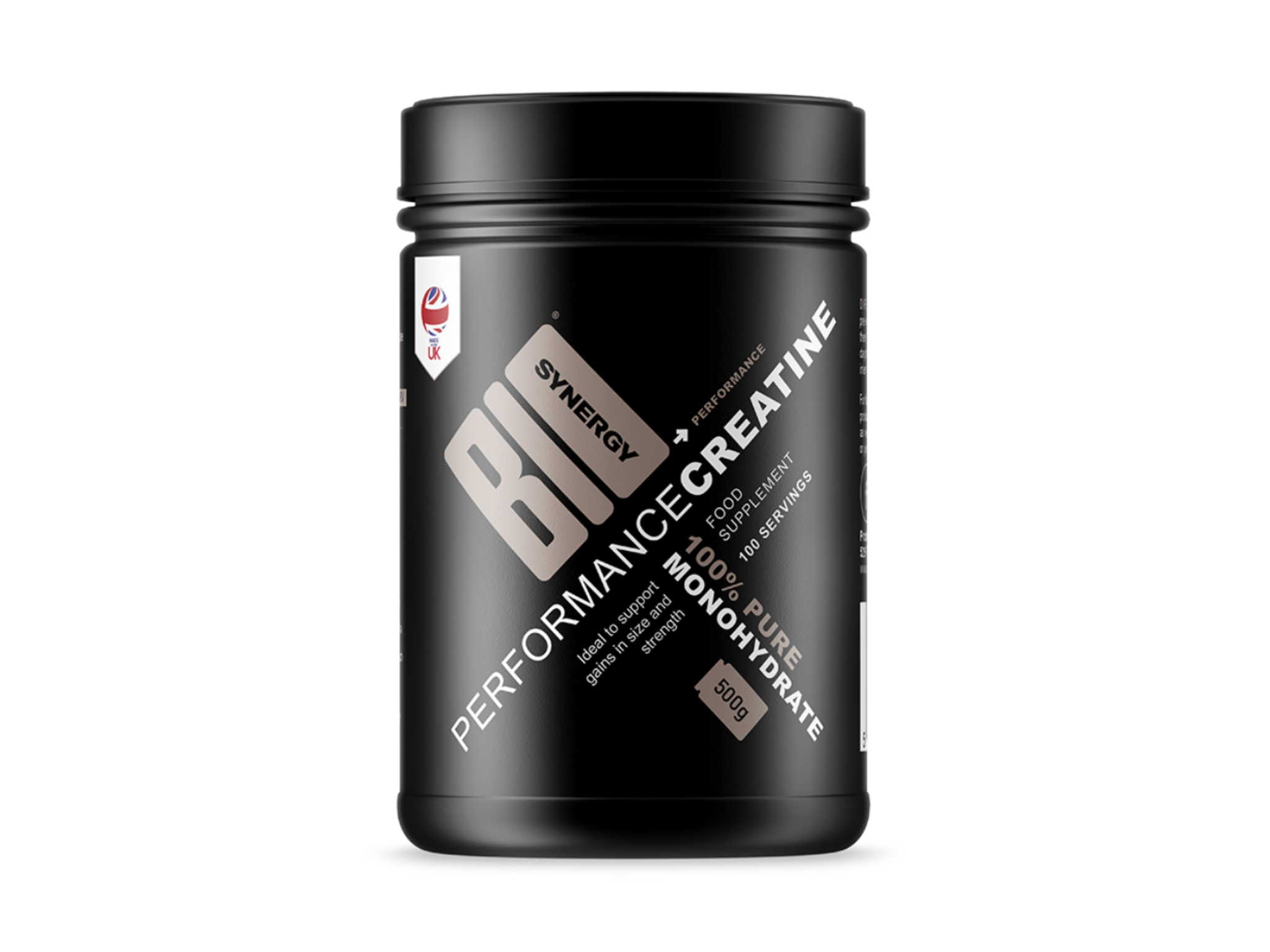
This unflavoured creatine monohydrate powder is suitable for vegans and is made in the UK. The brand is B Corp certified (arguably the créme de la créme of eco-credentials), so it’s a good one to know if you’re looking to do your bit for the planet. The serving provides 5g creatine, which is on the higher end of the recommended daily dosage.
Love Life creatine monohydrate: £34.95, Lovelifesupplements.co.uk
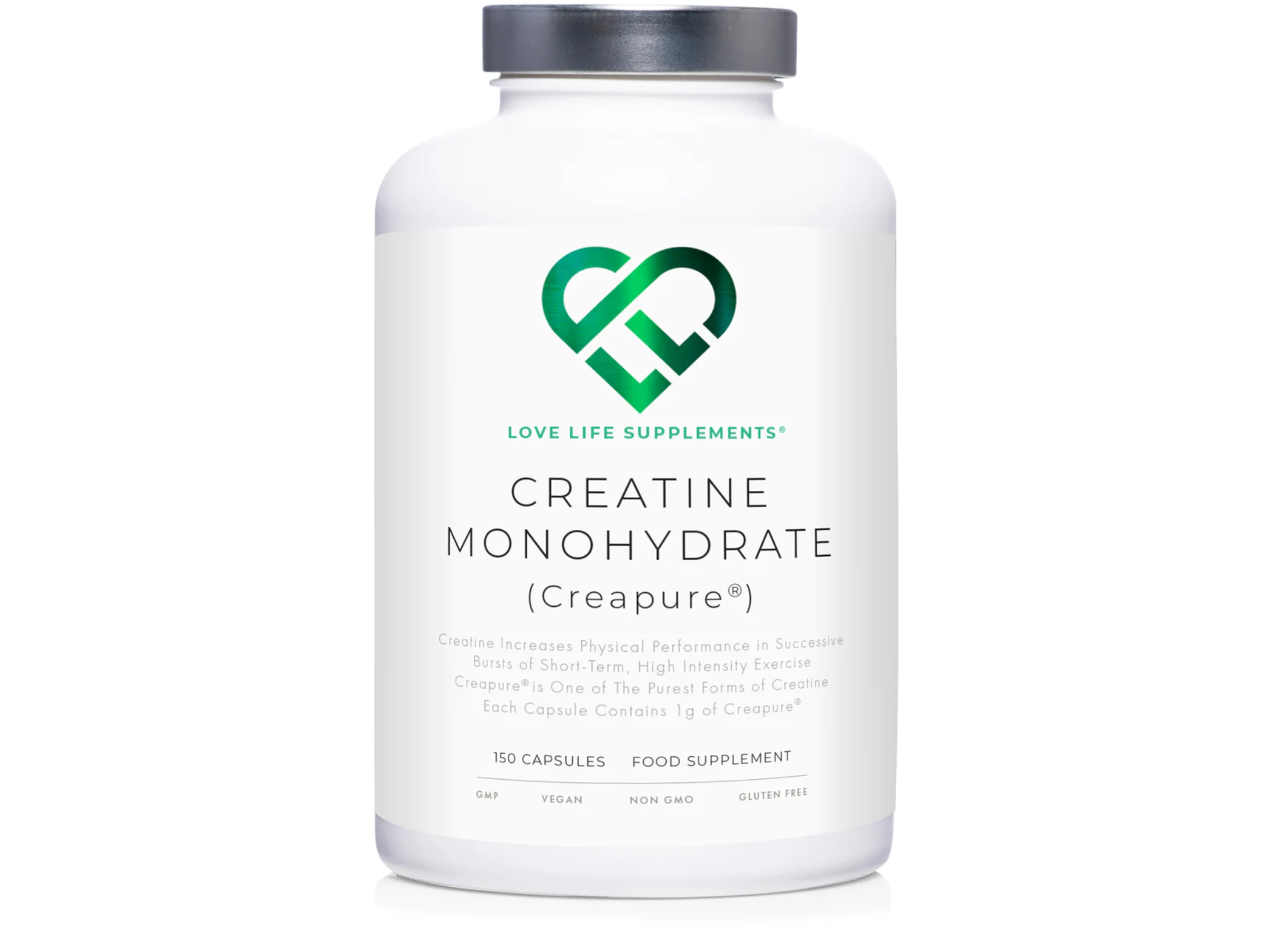
Contained in capsule form, this one is a great pick for those who don’t want to drink it. The creatine is gluten-free, non-GMO, suitable for vegans and IFS Food certified. Each capsule contains 1g, so you can take three to five capsules each day.
Bulk creatine monohydrate powder: Was £6.99, now £6.64, Amazon.co.uk
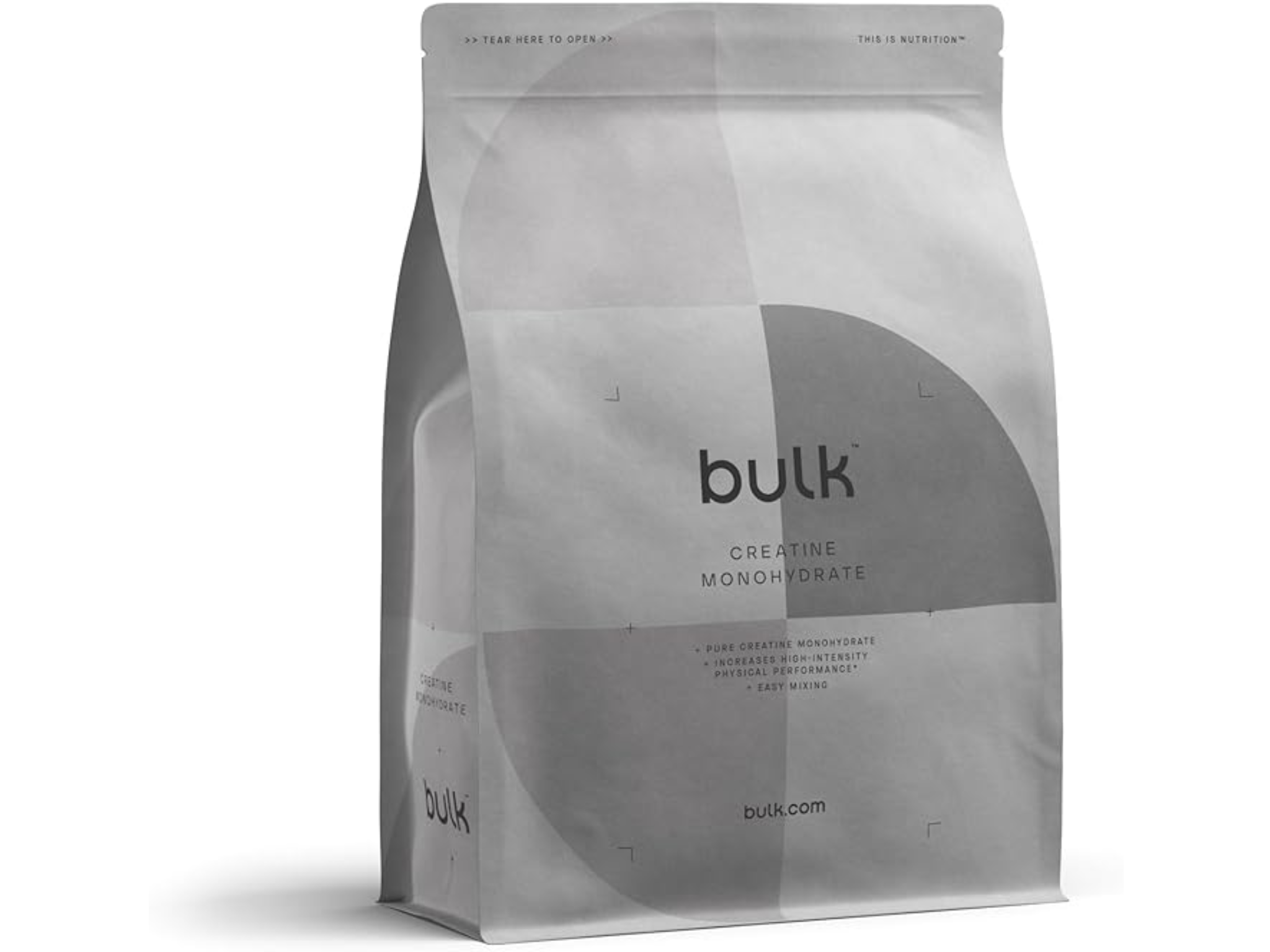
This unflavoured creatine monohydrate powder mixes pretty well despite not being micronised. Should you prefer the powder to be flavoured, it also comes in vanilla, blue raspberry, mixed berry, and apple and lime. One serving provides 5g.
Warrior micronised creatine monohydrate: Was £16.99, now £14.99, Teamwarrior.com
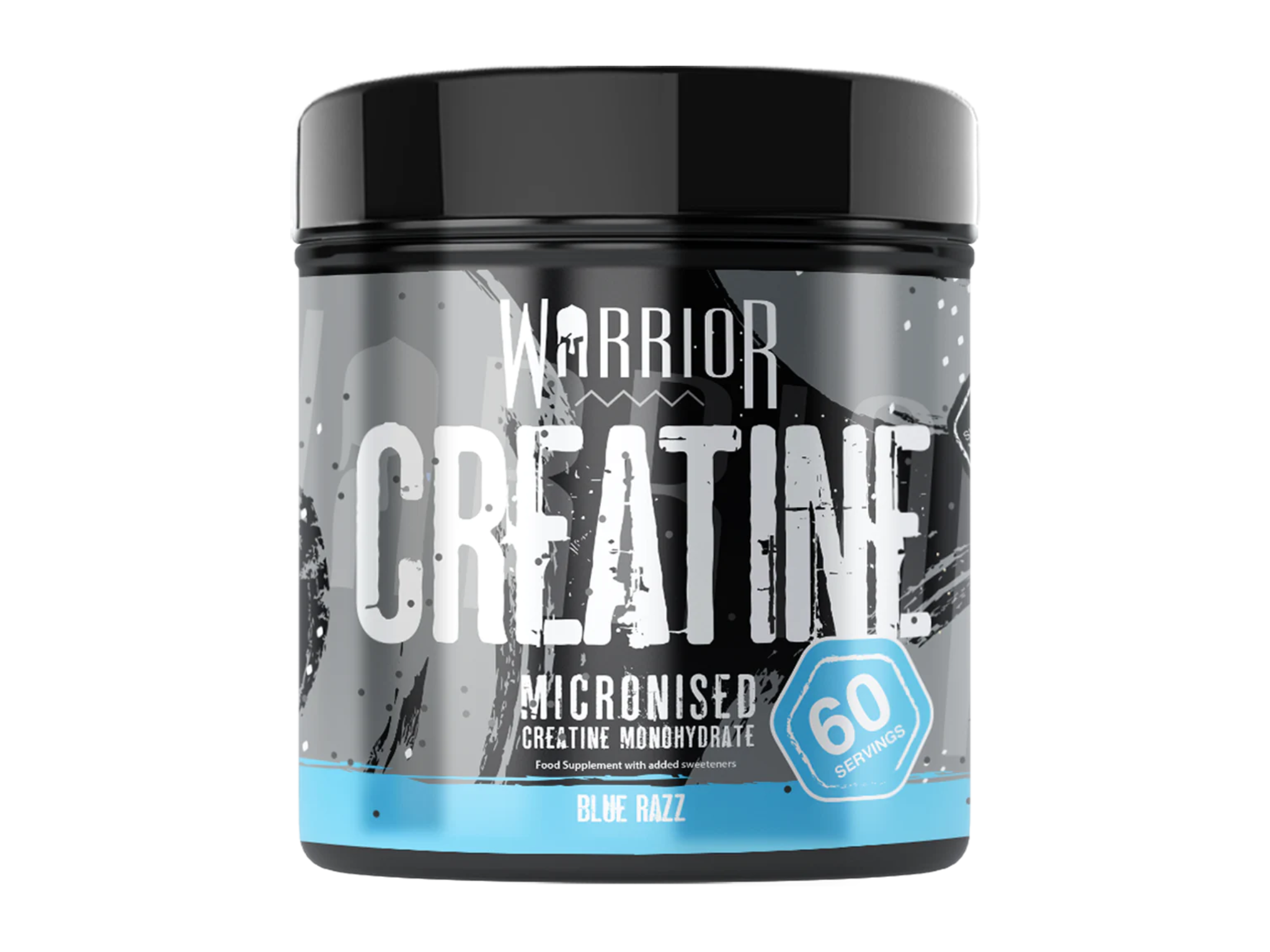
This micronised powder is unflavoured, but it’s also available in a range of different flavours if you don’t like the taste of plain. There are 60 servings in the 300g container, and each serving contains 5g creatine.
Creatine FAQs
How much creatine can you take per day?
The daily recommended dose of creatine is between 3g and 5g. If you are loading creatine then the typical dose may be between 15g-20g – this dose is then split over the course of a day. Make sure that you have checked with your doctor before taking any supplements is you are currently taking medication or have any health conditions, make sure that you have checked this your doctor.
Will creatine lead to weight gain?
Creatine may cause you to gain weight initially, but this is due to water retention. This isn’t something that everyone will experience.
How to take creatine
When using creatine supplement in powder form they are first mixed with water or a juice drink. Alternatively, creatine can a it can also be taken in capsule or tablet form. While you can take it either before or after exercise, it’s important to take it every day consistently to see the benefits.
Voucher codes
For the latest deals and discounts on other fitness and health must haves try these links below:
- Boots voucher codes
- JD Sports voucher codes
Keep track of your workouts with our review of the best Garmin watches
Bookmark popover
Removed from bookmarks